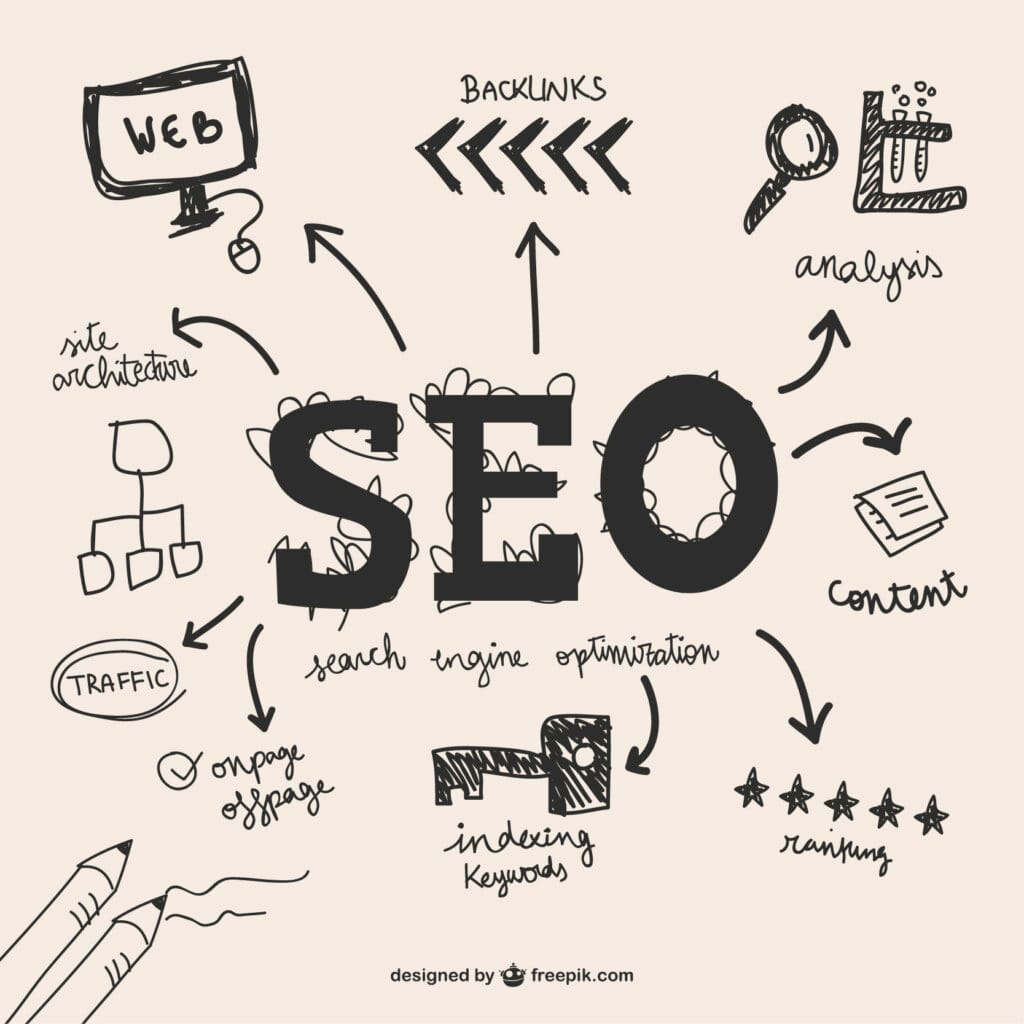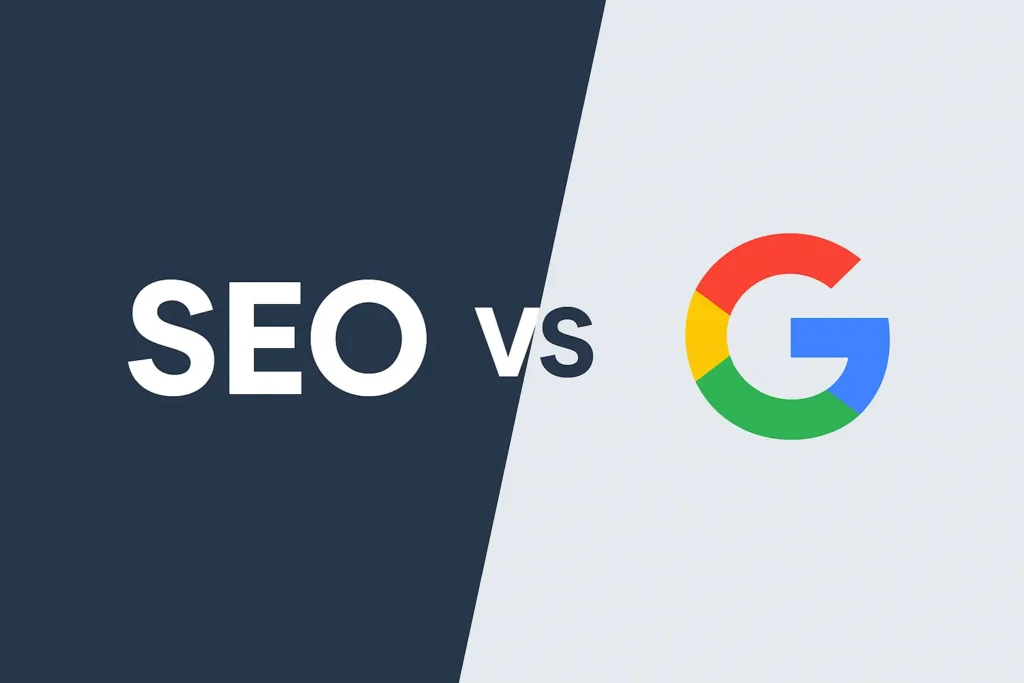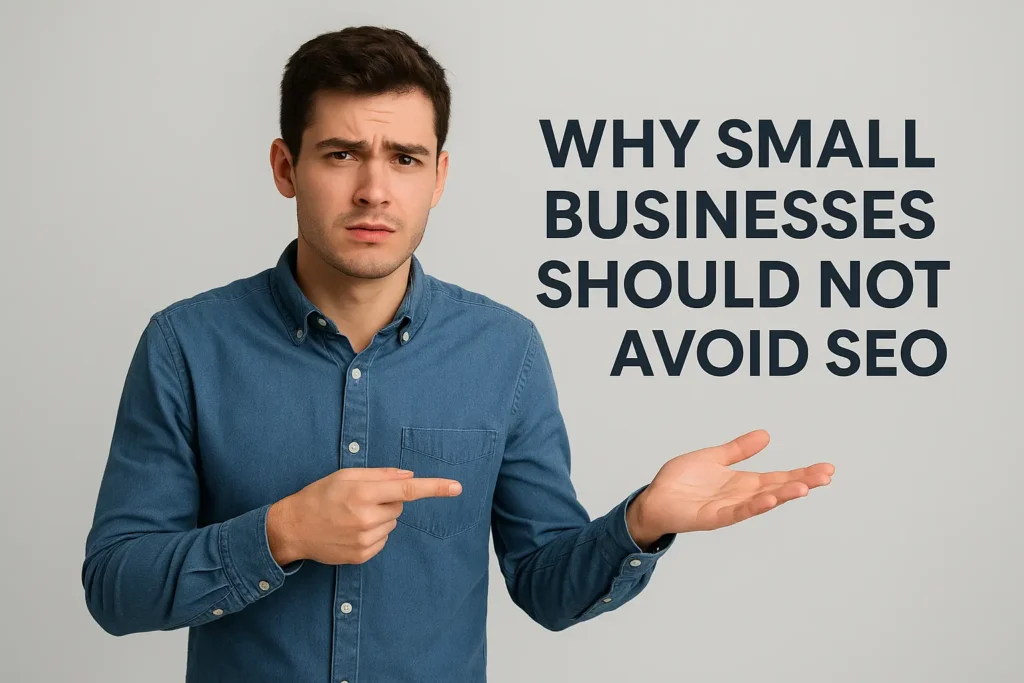If you’re a small business owner, chances are you’ve asked yourself:
“How much does SEO really cost, and is it worth it for my business?”
That’s a fair question. When every dollar matters, it’s natural to compare SEO with faster options like Google Ads or social media. But here’s the truth: avoiding SEO can actually cost you much more in the long run.
Let’s break it down in simple terms.

Key Takeaways:
- SEO is an investment, not an expense. It keeps driving customers long after the upfront work, unlike ads that stop the moment you stop paying.
- Cost varies by approach. DIY SEO costs time, freelancers cost less but vary in quality, while agencies cost more but bring structured, scalable results.
- SEO vs Ads is ownership vs rent. Ads deliver instant traffic but vanish when the budget ends, while SEO builds lasting visibility that compounds over time.
- Competitors are already investing. If you’re not showing up on Google, chances are your rivals are—and they’re winning your customers.
- Local SEO is a game-changer. Ranking for “near me” searches and collecting Google reviews can put you ahead even in crowded markets.
- Small steps add up. Optimizing your Google Business Profile, adding city-specific keywords, and publishing one blog a month can already move the needle.
- SEO builds trust. Customers are more likely to click organic results than ads, which makes SEO a credibility engine for small businesses.
- Avoiding SEO costs more than starting. Every day you delay, competitors strengthen their position and customer acquisition gets more expensive.
So, How Much Does SEO Really Cost?

The price of SEO depends on who’s doing it and how much you want done. Here’s a ballpark range:
- DIY SEO (free to $100/month): If you’re doing it yourself, you might spend on basic tools (like Ubersuggest, Yoast SEO, or a keyword planner). But this also means spending your own time, which is valuable.
- Freelancers ($500 – $1,500/month): Cheaper, but quality varies a lot. Some may deliver results, others may just give you reports.
- Agencies ($1,500 – $5,000+/month): Professional setup with strategy, reporting, and long-term results. Costs more upfront but usually brings consistent ROI.
Think of SEO like hiring a fitness trainer:
- You can work out alone (DIY),
- You can get a budget trainer (freelancer),
- Or you can go with a professional program (agency) that gets you lasting results.
SEO vs. Paid Ads: Which Costs More?

When you use Google Ads, it works on a pay-as-you-go model. Which means the moment you stop paying, the leads stop coming.
But with SEO, the work you do today continues to bring traffic for months (sometimes years).
Example:
- Spend $1,000 on Google Ads → you get clicks only while the ad is running.
- Spend $1,000 on SEO → your website can rank on Google and bring in customers even when you’re not spending anymore.
So, yes, SEO takes time, but it’s an asset that grows in value.
Why Small Businesses Should Not Avoid SEO

- Your competitors are doing it, so should you: In these modern times, we all know everyone is on the internet and your competitors are using SEO to show up on Google, and you don’t, guess who gets the calls?
- Customers trust organic results more: You must have noticed that when you search for something on Google you are shown the ads in the first 3 places. More often, you skip ads and click on organic results websites, as do your customers as they trust them more.
- Local SEO is a game-changer: Imagine a person types “plumber near me” or “best dentist in Montreal” and your business shows up. That’s free traffic 24/7. This is the real power of SEO.
- It’s cheaper in the long run: You might think SEO is expensive and slow but think of it as owning your home vs renting. Paid ads = rent, SEO = ownership. Over time, SEO wins.
What If I Can’t Afford SEO Right Now?

That’s okay, you don’t have to start big. Here are a few free or low-cost steps you can take today:
- Create, claim and optimize your Google Business account.
- When a customer visits your store, ask the customer to leave you a positive review on Google.
- Make sure to add city-specific keywords to your website.
- Start writing one helpful blog post/article a month, which answers customers’ questions and adds value.
These small steps will already move you ahead of many competitors who are doing nothing.
Final Word
SEO doesn’t have to drain your budget. Whether you spend time doing it yourself or hire someone, the real question is:
“Can I afford to keep ignoring SEO while my competitors show up on Google and I don’t?”
For small businesses, SEO isn’t a luxury; it’s a necessity. And the sooner you start, the less you’ll pay in the long run.
Pro tip: If you’re still unsure, start small. Track your website traffic for 3 months with Google Analytics after basic SEO changes, and you’ll see the difference yourself. And if you have a good budget and you are just starting out, use SEO and Paid Ads simultaneously for greater results.


